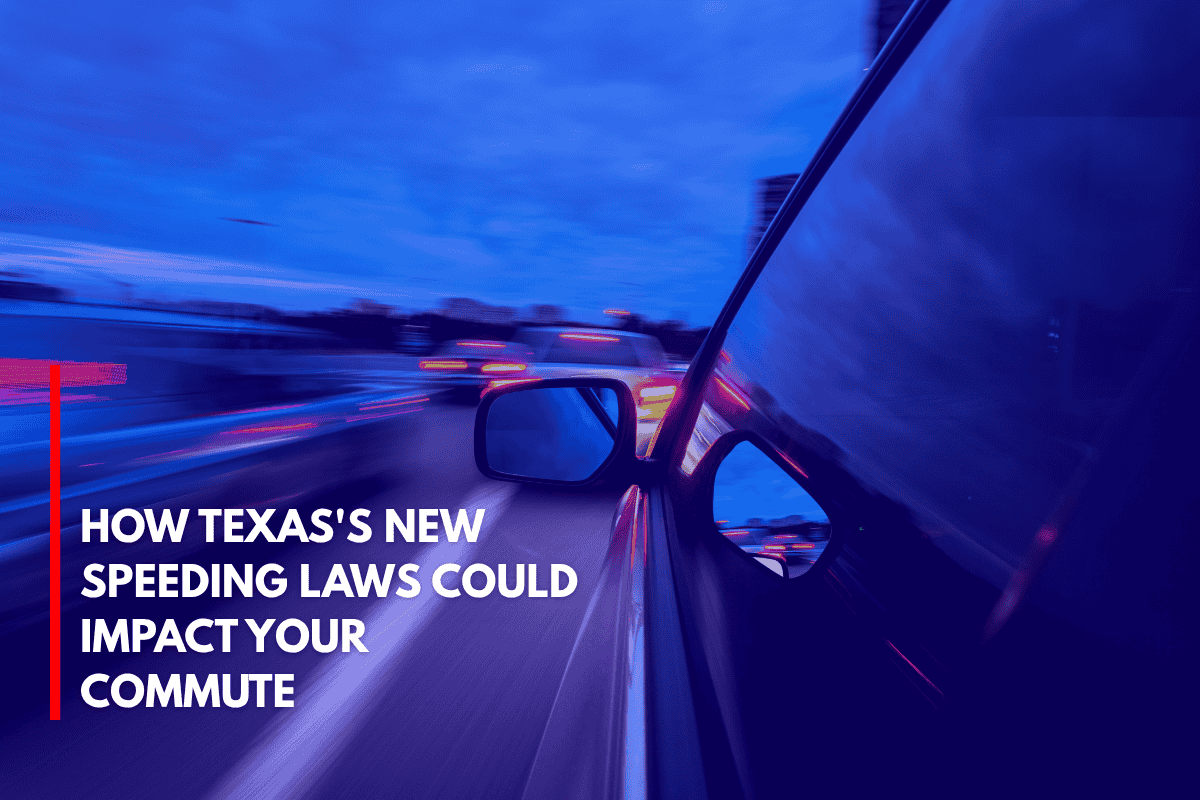Texas’s new speeding laws, particularly those relating to variable speed limits (VSLs), are designed to improve road safety and adapt to changing conditions, which could meaningfully impact your daily commute.
Key Changes and Their Effects
1. Variable Speed Limits (VSLs)
Dynamic Adjustments: House Bill 1885, effective since September 2023, allows local Texas Department of Transportation (TxDOT) engineers to temporarily lower speed limits on portions of roads or highways during hazardous conditions such as heavy fog, ice, snow, rain, construction, or emergencies.
Notification: The new speed limits are only in effect when clearly posted on electronic, mobile, or physical signs. This means you may need to pay closer attention to signage during your commute, as speed limits can change even on the same stretch of road.
Minimum Limit: The law specifies that temporary speed limits cannot be set more than 10 mph below the regular posted limit.
Enforcement: Drivers are required to obey these temporary limits just as they would standard ones. Violating a variable speed limit can result in a ticket and, if involved in an accident, could make you liable for damages.
2. Increased Enforcement and Penalties
More Tickets: In cities like Houston, where speed limits have recently been lowered on several roads, there has been a significant increase in speeding tickets—up to 17% more in the first month after changes were implemented.
Penalties: Speeding in Texas is a criminal offense, with fines for first-time offenders typically ranging from $150 to $300, and penalties increasing with higher speeds or aggravating circumstances (e.g., school or construction zones).
Repeat Offenses: Multiple violations can lead to higher insurance rates, points on your license, and even arrest for reckless driving or excessive speeding.
How This Impacts Your Commute
Greater Need for Awareness: You must stay alert for changing speed limit signs, especially in adverse weather or construction zones, as the limits can now fluctuate in real time.
Potential for Slower Commutes: During bad weather or construction, expect posted speed limits to be lower, which may slow your commute but is intended to reduce accidents and improve safety.
Risk of Increased Fines: With more enforcement and stricter penalties, the likelihood of receiving a ticket for speeding—even unintentionally—has risen, especially in areas with new or reduced limits.
Improved Safety: Data from pilot programs show that variable speed limits have led to fewer accidents and smoother traffic flow in hazardous conditions, which could make your commute safer overall.
Summary Table
| Change | Impact on Commute |
|---|---|
| Variable Speed Limits (VSLs) | Speed limits can change in real time; watch signs |
| Increased Enforcement | Higher chance of tickets for speeding |
| Lower Speed Limits in Cities | Slower commutes, but potentially safer roads |
| Stricter Penalties | Fines, points, and possible arrest for repeat offenses |
Texas’s new speeding laws mean your commute could be slower during bad weather or construction, but with the benefit of greater safety. You’ll need to stay alert for changing speed limit signs and expect stricter enforcement, which could result in more tickets if you’re not careful.
Sources:
- https://legiscan.com/TX/text/SB2725/id/3174012
- https://www.sll.texas.gov/spotlight/2024/12/new-laws-effective-january-1st-2025/
- https://legiscan.com/TX/text/SB1088/2025
- https://www.iihs.org/research-areas/speed/speed-limit-laws











Leave a Reply